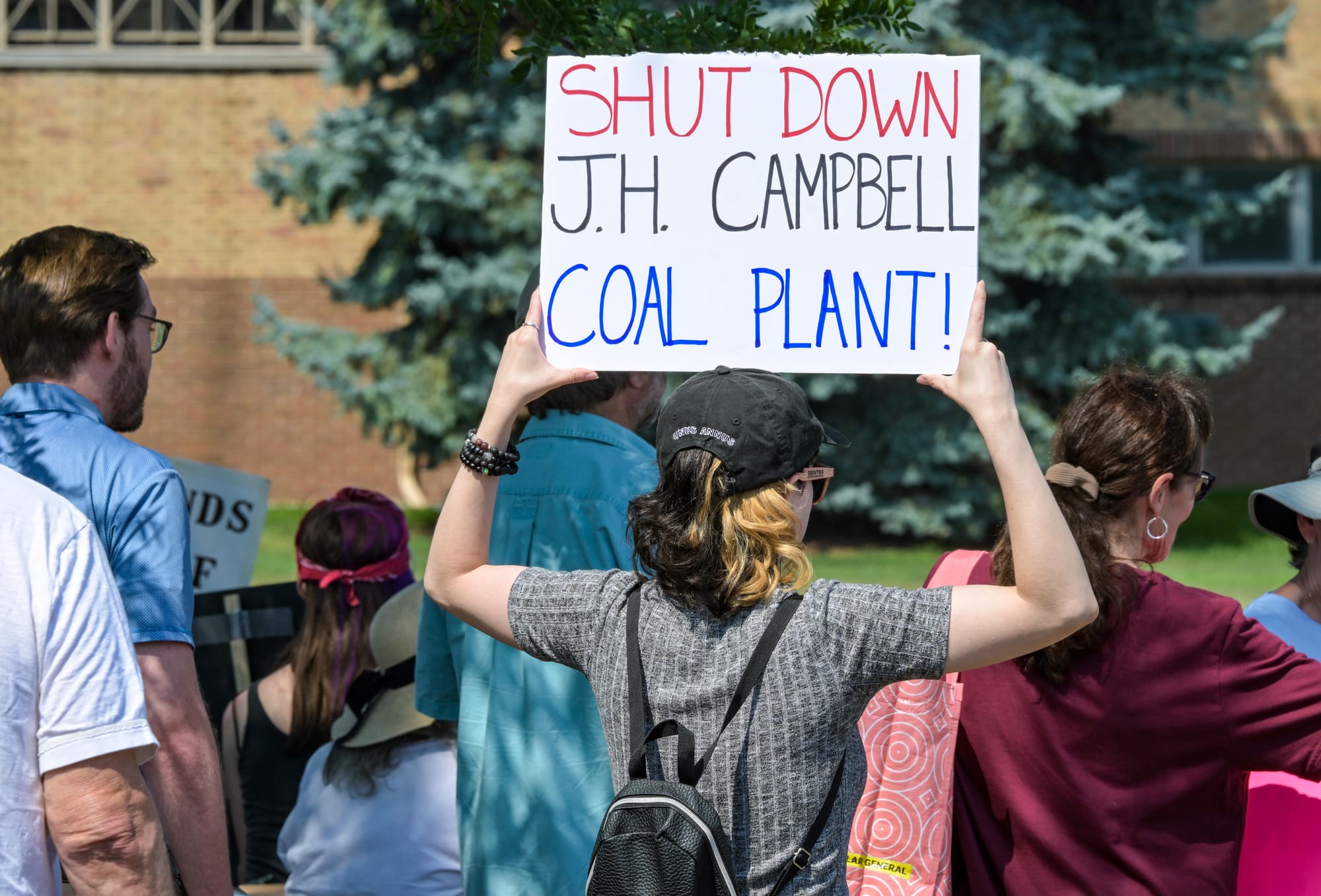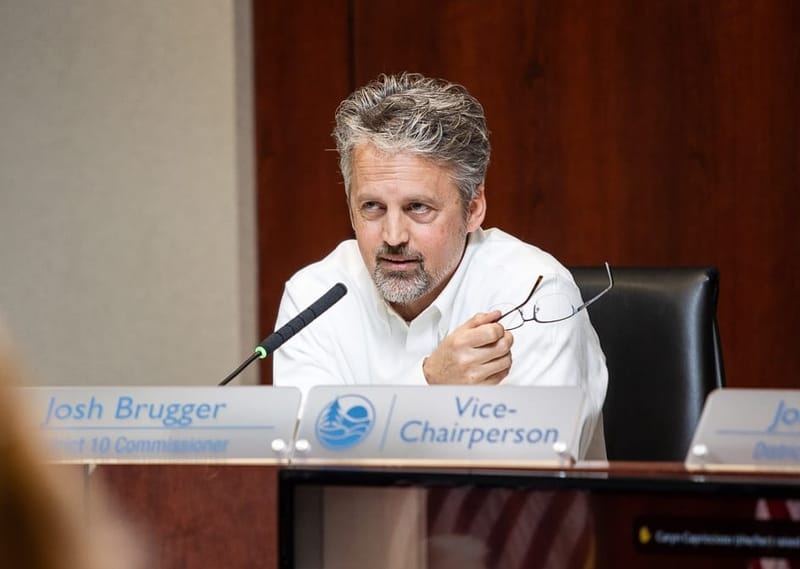Protestors rally in Holland, call for Campbell coal plant to close
Ottawa County residents continued to call for the closure of the coal-fired J.H. Campbell coal plant on Friday, decrying a Trump Administration order in May that prevented the facility from closing as planned earlier this year.
HOLLAND — Ottawa County residents continued to call for the closure of the coal-fired J.H. Campbell coal plant on Friday, decrying a Trump Administration order in May that prevented the facility from closing as planned earlier this year.
"The Campbell coal plant is Consumers Energy's last coal power plant (in Michigan), and it's one of the biggest contributors to pollution in our entire state," said Indigo Umlor, of the Michigan League of Conservation Voters, which organized the protest along with the Sierra Club and other local activist groups.
The 18-year-old Byron Center resident said the majority of county residents don't want the plant to continue operations because it's driving up energy bills for residents and remains a major contributor to air pollution in the area.
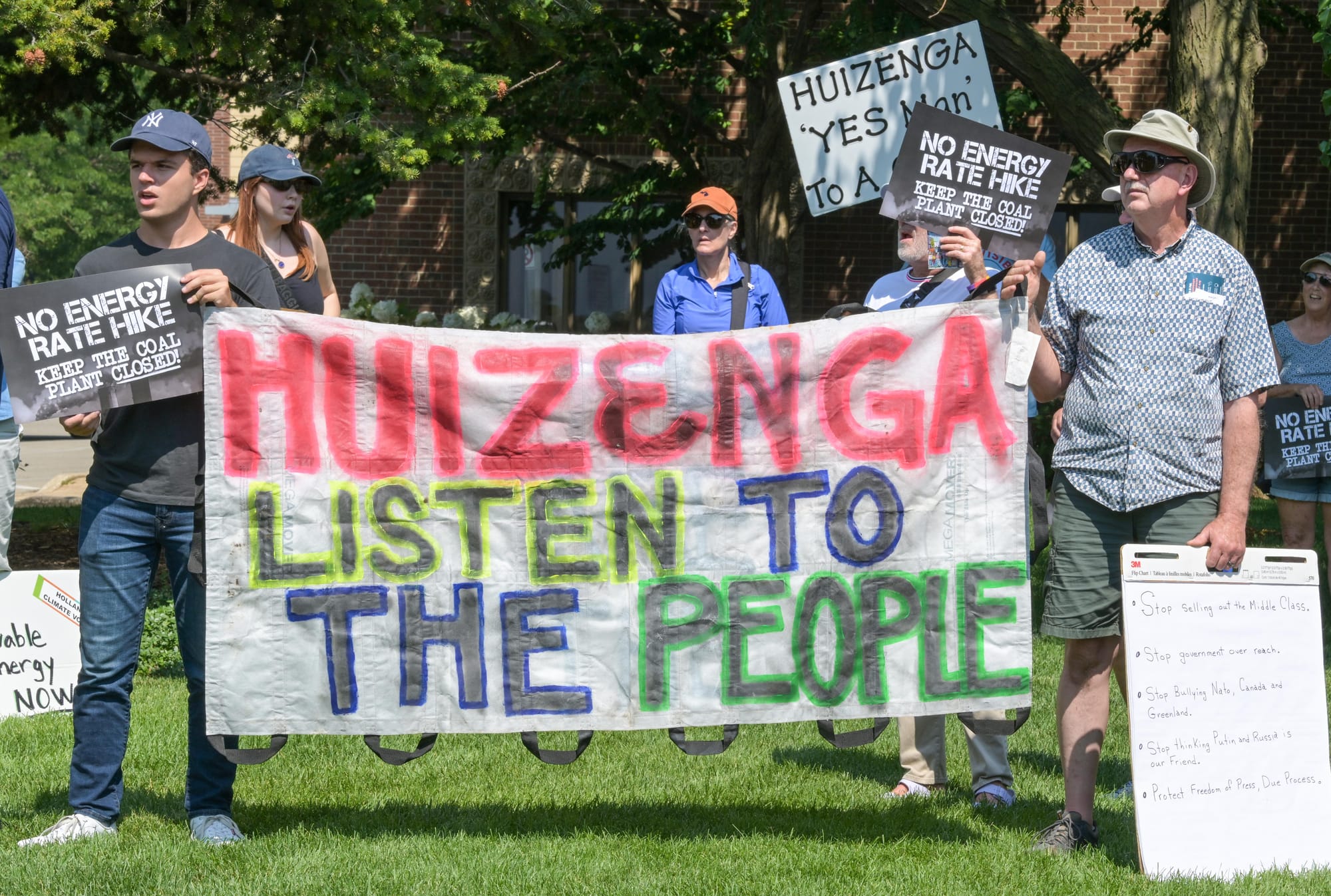
"We don't want that by our lakes. We don't want that by any of us," Umlor said. "The closure of the plant was planned for years and years, and it was projected to save Michiganders $600 million by 2040, but instead, Bill Huizenga has chosen to align with MAGA politicians and align with keeping this plant open for longer. This plant is costing about $1 million per day to stay open, and in the last five weeks, has cost taxpayer dollars about $30 million."
How we got here
The protest, which marched from downtown Holland's Window on the Waterfront to U.S. Rep. Bill Huizenga's Holland office, was the second protest this week over the controversial continued operation of the Campbell plant, which has become the epicenter of a legal battle between the U.S. Department of Energy and Michigan Attorney General Dana Nessel.
On Tuesday, a group of lawmakers, health professionals and other officials held a press conference in the shadow of the Campbell plant, calling on federal officials to withdraw a May 23 federal order exercising wartime powers to force Consumers to keep the plant available for operation for 90 days.
Read More: Activists, officials call for closure of Campbell coal plant as utility looks to recover costs
Read More: Campbell coal plant's closure delayed 90 days with Energy Secretary's emergency order
The plant, operating since 1962, was originally scheduled to close partially in 2030 and wholly in 2040. But the utility announced in 2021 it was moving the plan up by 15 years for an operations end date of May 31, 2025.
Consumers has said closing the plant was expected to save Michigan ratepayers $600 million by 2040.
Read More: Consumers Energy reaches agreement to close Campbell plant, end utility's coal use by 2025
The utility was seeking to end coal use altogether by 2025 as part of its goal to achieve carbon neutrality.
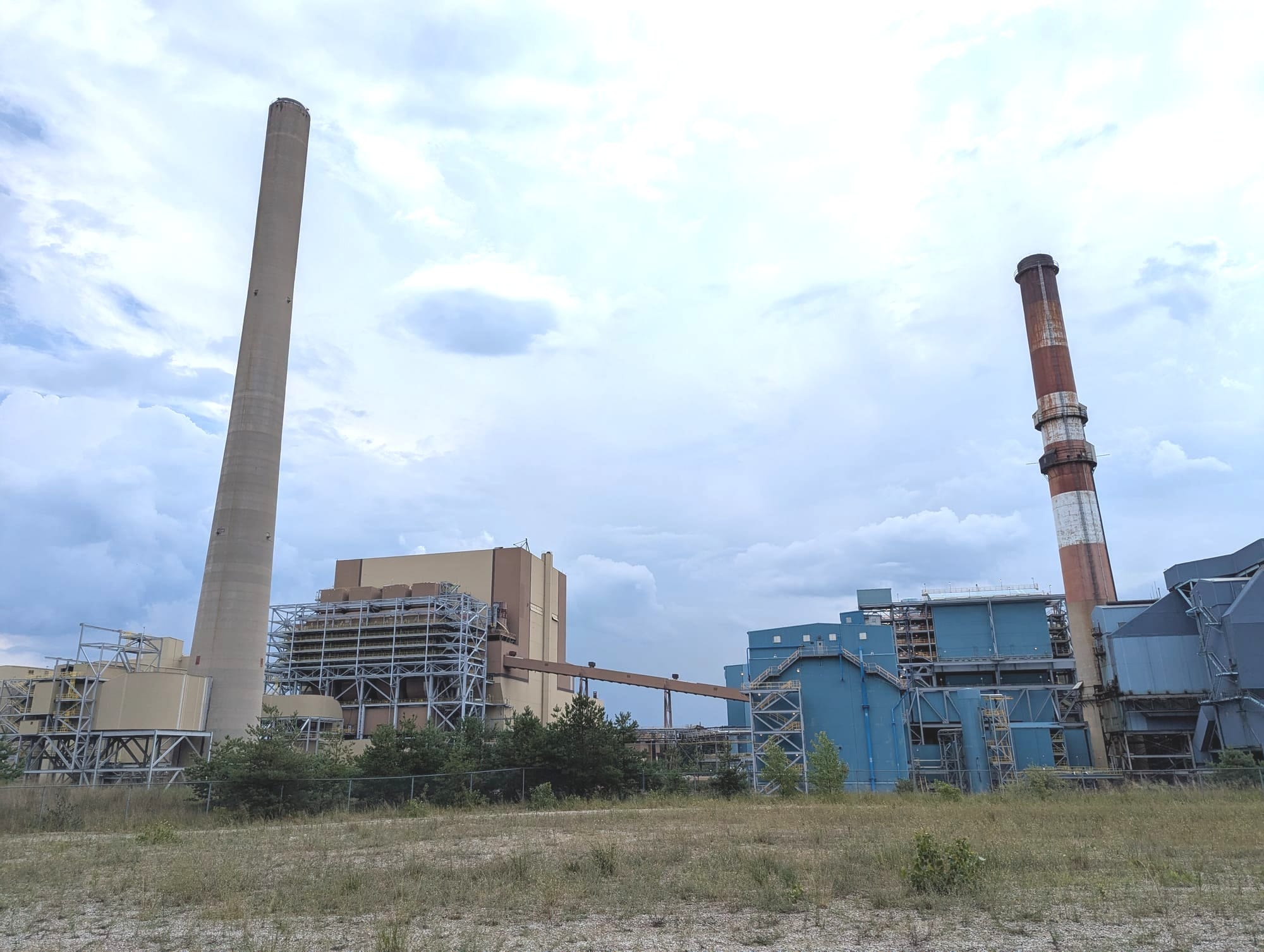
On May 23, U.S. Energy Secretary Chris Wright directed the Midcontinent Independent System Operator in coordination with Consumers to ensure that the 1,560 megawatt plant "[remain] available for operation, minimizing any potential capacity shortfall that could lead to unnecessary power outages."
The Energy Department said the emergency order is authorized by Section 202(c) of the Federal Power Act and is in accordance with President Trump’s Executive Order: Declaring a National Energy Emergency to ensure that power generation availability in the region does not “dip below 2024 capacity levels.”
The order came just eight days before the plant was scheduled to shut down.
Wright said the move was intended “to minimize the risk of blackouts and address critical grid security issues in the Midwestern region of the United States ahead of the high electricity demand expected this summer.”
“This administration will not sit back and allow dangerous energy subtraction policies threaten the resiliency of our grid and raise electricity prices on American families. With President Trump’s leadership, the Energy Department is hard at work securing the American people access to affordable, reliable, and secure energy that powers their lives, regardless of whether the wind is blowing or the sun is shining."
In June, Nessel — along with a collective group of public interest organizations, Minnesota and Illinois, Maryland Office of People’s Counsel, and the Organization of Midcontinent Independent System Operator States — challenged the DOE's order to keep the Campbell plant in Port Sheldon Township to remain open for 90 days, arguing that the move will force customers to absorb exorbitant costs.
Read More: AG Nessel takes challenge to DOE's order to keep Campbell plant open to Court of Appeals
Nessel filed a request for rehearing with the DOE, challenging what she described as an "arbitrary and illegal order seeking to stop the planned retirement of Consumers Energy’s J.H. Campbell coal-fired power plant in West Olive, Michigan, under the pretense of a fabricated energy emergency."
Read More: Nessel challenges order to keep J.H. Campbell Plant open as energy experts predict price hikes
She said the order "will burden Michigan utility customers with unnecessary costs and needless additional pollution from the 60-year-old Ottawa County coal plant that was scheduled to close May 31."
When the DOE didn't respond to Nessel's request within 21 days, she filed a petition for review July 24 with the U.S. Court of Appeals for the Washington, D.C., Circuit, challenging the U.S. Department of Energy's order, claiming the "arbitrary and illegal" move forced the continued operation of the plant "under the pretense of a fabricated energy emergency."
“This unprecedented order by the Department of Energy declares an emergency without evidence, completely ignores state and federal regulators that approved the plant’s retirement, and will potentially put enormous costs onto utility customers who receive no real benefit,” Nessel said. “I will continue to fight to protect Michigan customers from unreasonable costs imposed by the federal government.”
Last month, Nessel also filed a pleading before the Federal Energy Regulatory Commission in response to Consumers’ request to recover the costs from running the Campbell plant beyond its initial retirement date. That proceeding is still ongoing.
Katie Carey, director of media relations for Consumers, said Tuesday that the utility is continuing to comply with the DOE order and has requested "the timely recovery of costs associated with plant operations."
"We expect FERC will take timely action on our request. Our FERC filing from Friday, June 6, requests approval of a mechanism to recover and allocate those costs through MISO.
Frustration mounts with residents
"This is a clear example of how the Trump Administration doesn't care about what the constituents want. This is why we're out here protesting," Umlor said. "We need to show Bill Huizenga and the rest of the MAGA party that we don't support their actions. As a matter of fact, we support our Earth."
Friday's protest drew nearly 100 participants, who displayed signs with slogans like "Huizenga: Listen to the people," "Leave coal in the ground" and "My asthma and my wallet can't afford coal."
Dr. Steven Ashmead, a family physician and a member of the Michigan Clinicians for Climate Action, said coal-fired plants pose serious negative health effects to residents, which is part of well-settled science.



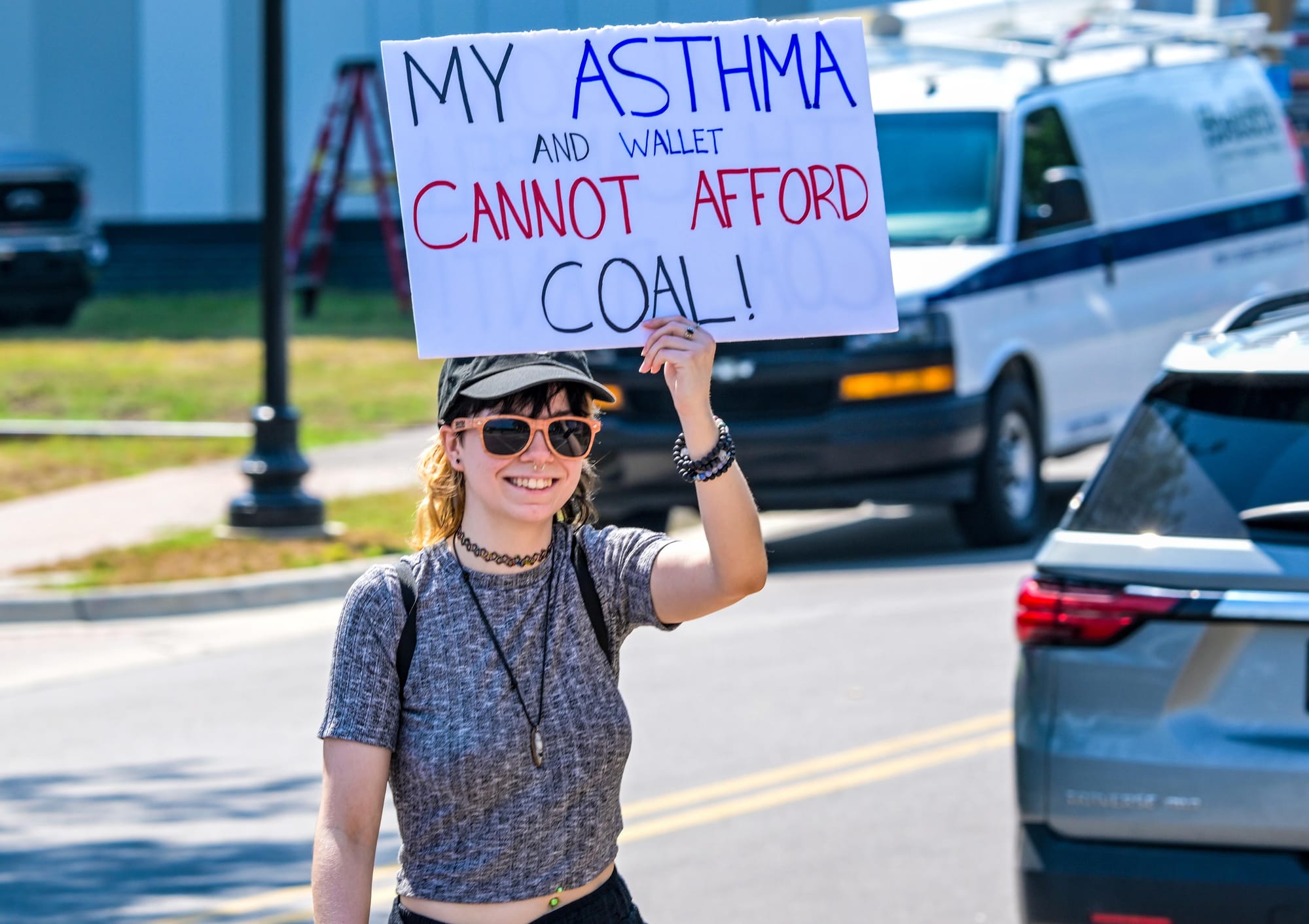

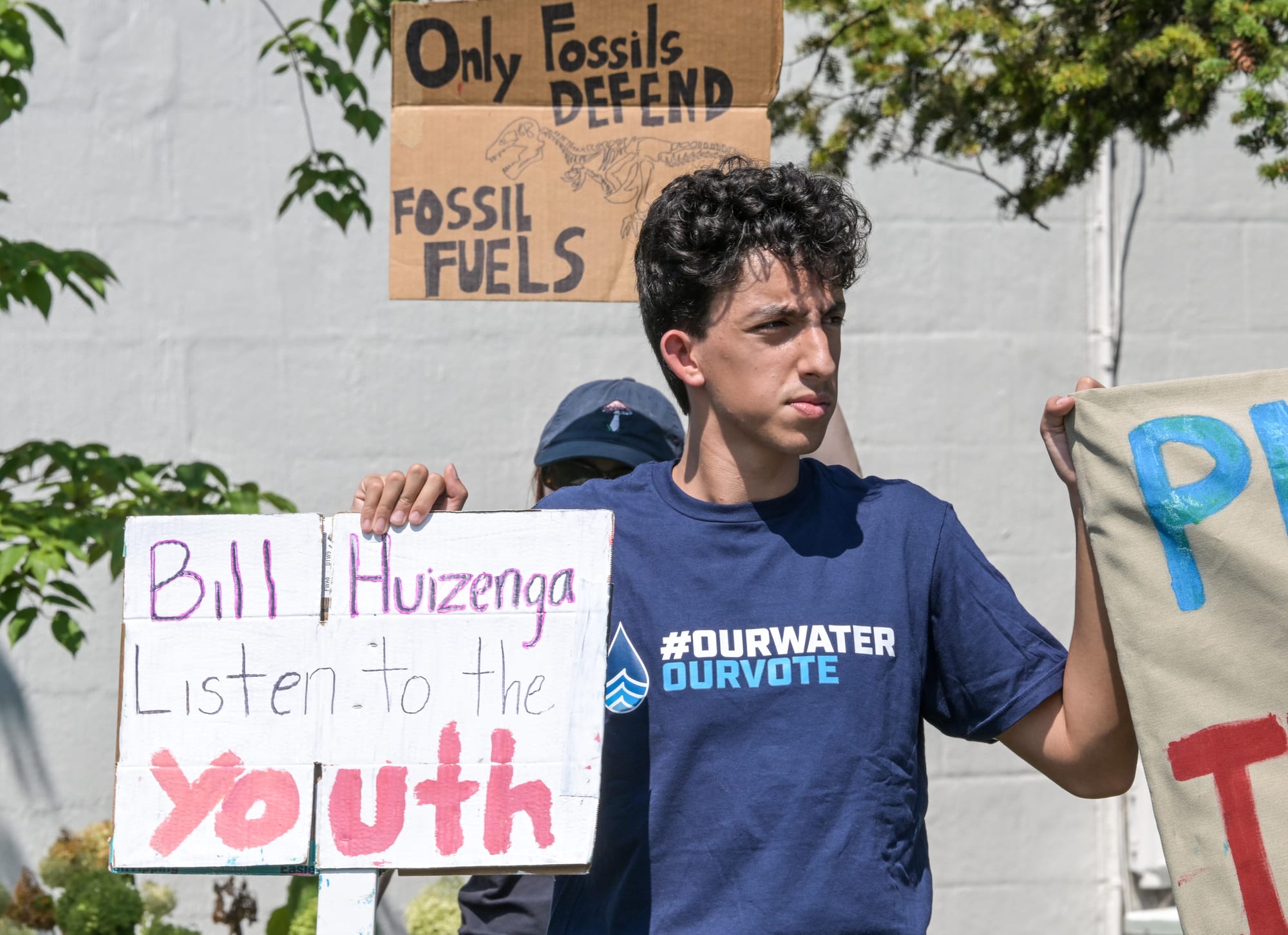

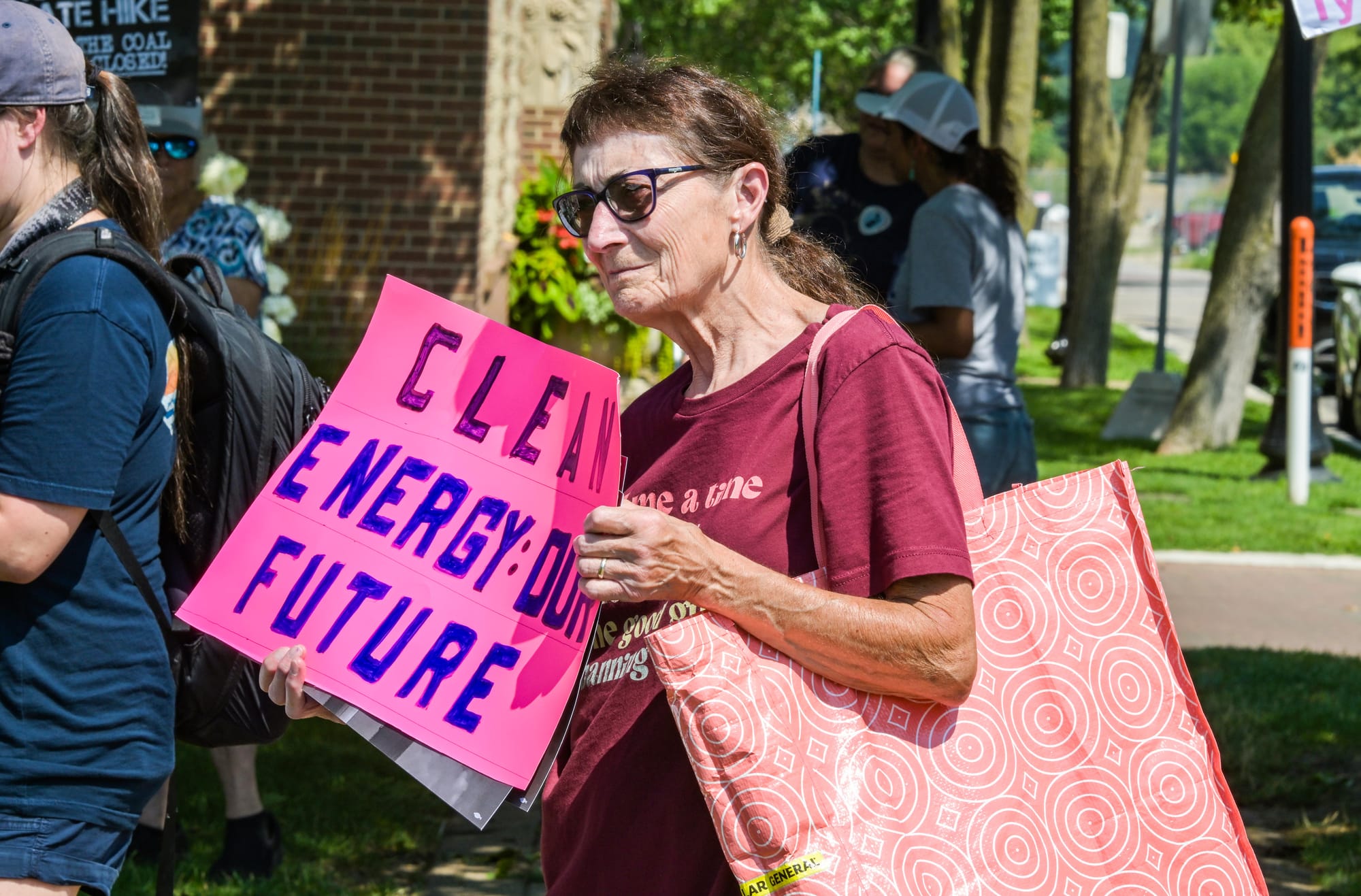
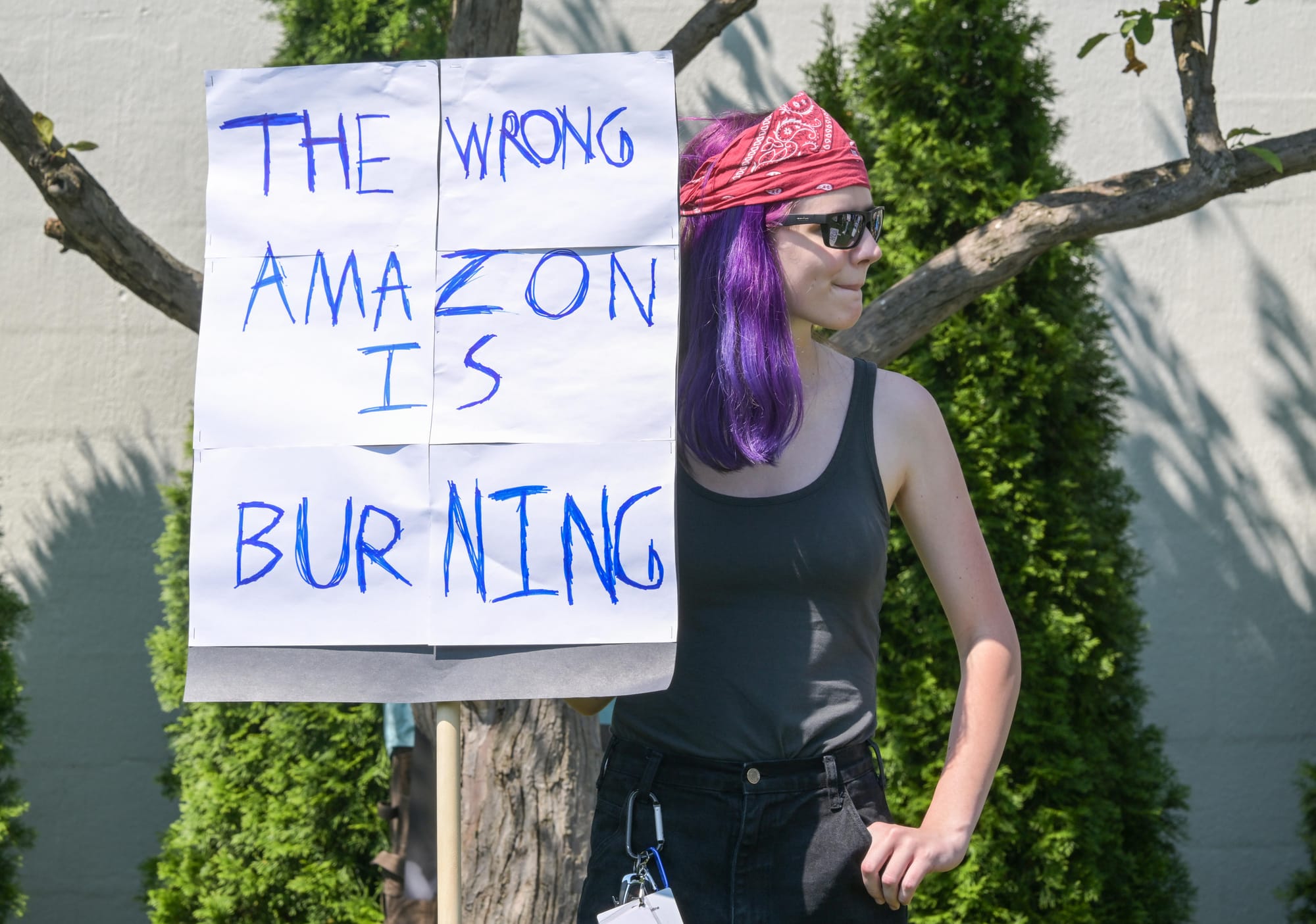
Protestors demonstrate in Holland's Memorial Park on Friday, Aug. 15, 2025, calling on the federal government, U.S. Rep. Bill Huizenga and Consumers Energy to allow the J.H. Campbell coal plant to close. [ONN photo/Dirk Wierenga]
"Public health of Michigan is more important than the political favors the Trump administration owes in coal, in the fossil fuels for over 60 years," Ashmead said.
He said the burning of fossil fuels has caused pollution that has led to widespread health issues for many Michigan residents.
"We cannot stress that enough pollutants like carbon dioxide, particulate matter, nitrous oxide, sulfur dioxide and toxic metals such as arsenic, lead, mercury and radioactive radon exposure is highest to those of us living closest to the plant right now," he said. "However, those westerly winds blow those emissions straight to Grand Rapids and beyond. The coal ash contains at least 17 toxic heavy metals, including lead, mercury, cadmium, all of which damage human health and at least six neurotoxins and five known or suspected carcinogens."
Ruby Muehlenz, a local youth activist who grew up in Holland, said keeping the Campbell open is a short-sighted move that perpetuates bad energy policy.
"Energy bills are just too damn high, guys," Muehlenz said. "I'm in college, I'm at an apartment, I'm paying my own bills. It's cost us already almost $30 million ... energy prices will rise across the Midwest. Young people ... we're trying to create our own future."
Local politics involved
In February, the Ottawa County Board of Commissioners approved a resolution in a 10-1 vote urging a delay in the plant’s closure pending a second look by state regulators; however, they stopped short April 22 of approving a resolution that would have brought litigation to prevent the closure altogether.
At the time, the 10 Republicans on the board cited concerns over reports from energy watchdog agencies that warned of possible brownouts and blackouts in summer 2025 if more generating facilities were taken offline.
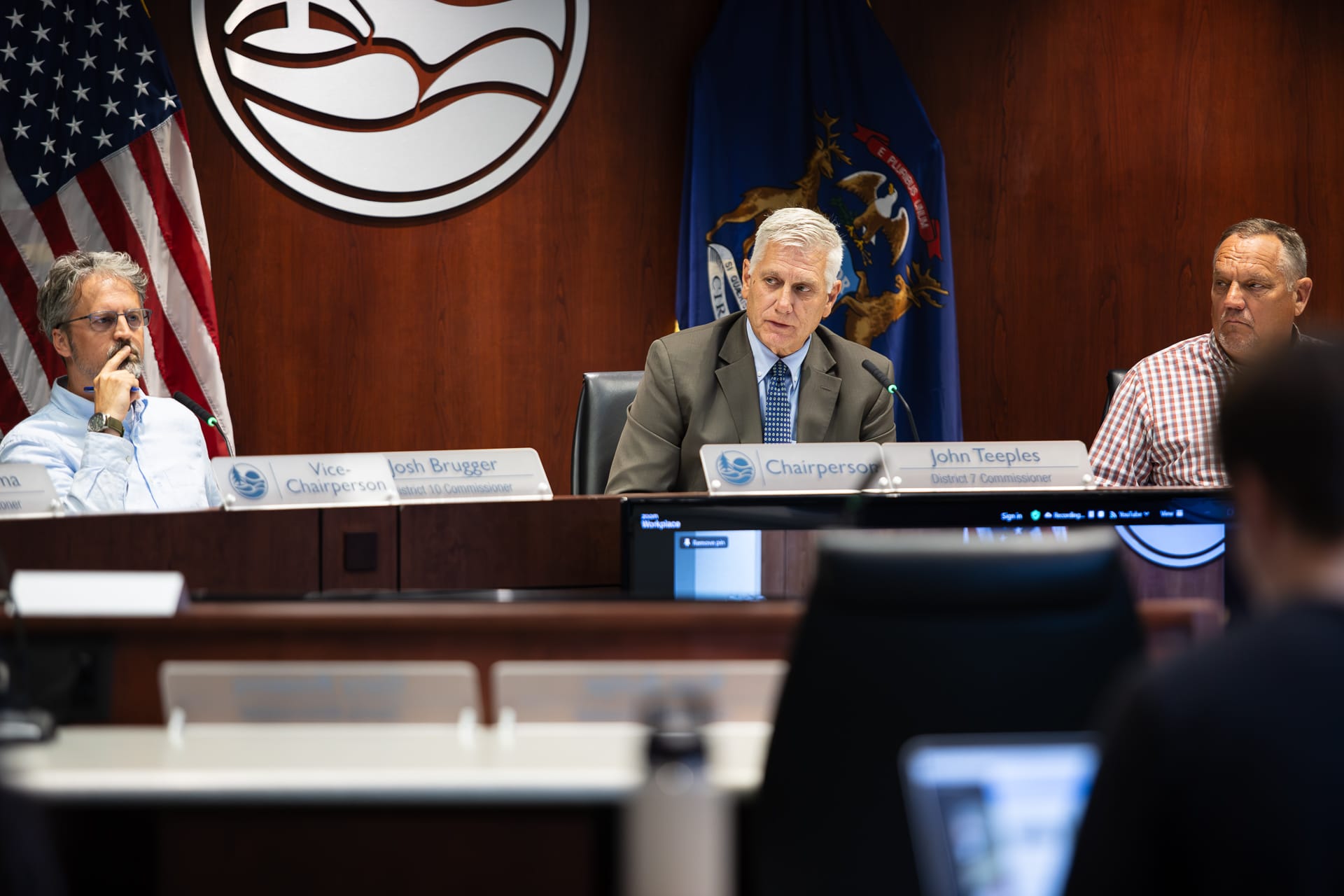
Board Vice Chair Josh Brugger, who voted in favor of the board's May resolution, said earlier this week that commissioners merely intended to protect county residents from potential grid instability.
"My intention was that we were deferring to the state of Michigan's authority and for them to weigh in and provide a second opinion on whether it should or should not be closed. Like, full stop right there," he said Tuesday.
Board Chair John Teeples echoed his colleague's comment.
"The resolution was to ask the [MPSC] to relook at this issue, in light of the concern that the grid was in jeopardy, at risk. That's all it was, and that's where it ended, even though other people wanted to go beyond that," Teeples said Tuesday.
"Some wanted to start a lawsuit, which I thought was absolutely ridiculous and a waste of taxpayer dollars without any foresight about what it could mean," he said. "So, all we were doing was raising the flag and that was it. That's the extent. From my perspective, the county should go no more, no less. There's nothing wrong with asking our elected officials or regulators to make sure you've got your T's crossed, your I's, dotted. That's all this was, and that's where it should stay."
What's the cost?
In a June 3 statement, a Consumers spokesperson said the company is currently complying with the order.
"We are currently in compliance with the order, have arranged for new shipments of coal, some of which arrived last week, and will continuously operate the Campbell Plant," Trisha Bloembergen, West Michigan media relations specialist, said in a June 3 email. "We are still determining the overall cost, but want to ensure those costs are shared across MISO and not all on Consumers Energy customers."
Generating power at the Campbell plant is likely to be costly for ratepayers, experts from the Institute for Energy Economics and Financial Analysis wrote June 5.
Campbell Units 1 and 2, which are 63 and 58 years old, respectively, were already increasingly uncompetitive in the MISO market, meaning it cost more to generate electricity than what it could be sold for, said energy data analysts Seth Feaster and Dennis Wamsted.
According to data filed by Consumers at FERC, the operation and maintenance costs for the two units totaled $45.80 per megawatt-hour (MWh) in 2023 (the most recent data available). That puts both units in the red almost all the time in MISO: S&P data shows that the monthly around-the-clock price at the Michigan hub has been above $40/MWh just twice in the past two years, and never during the summer.
"In other words, the plant would lose money on virtually every MWh generated if past prices hold this summer, costs that could add up to many more millions of dollars if the units at Campbell are run for any substantial amount of time," Feaster and Wamsted said.
Beyond operational costs, there are fuel and staffing costs as well.
"Coal itself has gotten more expensive," said Frank Rambo, executive director at Horizon Climate Initiative, a nonprofit organization that works to use cost-saving energy market reforms to address the causes and impacts of climate change.
"That fleet has gotten more expensive to run. It's coal, which used to be synonymous with cheap power. It's now among the most expensive power ... and then the excess costs that are incurred because they're running more expensive resources.
Ultimately, it will be residents who foot the bill, Rambo said.
"They run those coal plants, and then they turn around, go to their commissions and recover those excess costs from their customers," he said.
Rambo said the price could be even higher than normal because Consumers would need to buy coal on the open market rather than enter into a new contract with a mine.
"We don't need to sign a new long-term coal supply contract because we're shutting the plant down," he said. "Now they may have to buy coal on the spot market."
Support Our Work
Ottawa News Network is a nonprofit news service dedicated to providing the residents of Ottawa County with trustworthy, community-driven news. ONN treats journalism as a public good — something that enriches lives and empowers Ottawa County’s 300,000-plus residents to stay engaged, make informed decisions, and strengthen local democracy. Please consider giving today.
Although the DOE ordered Consumers to keep the Campbell "available" for energy generation, the utility hasn't publicly released whether the plant is currently generating power.
Carey, of Consumers, said Tuesday that the utility's costs will "depend on a number of factors, including offsetting revenue from plant operations, and are still being determined."
"The cost of operating the plant will be shared by customers across the north and central MISO region, consistent with the DOE order," she said. "We will continue to work with MISO and with federal and state regulators to ensure compliance with the order and appropriate cost recovery."
— Sarah Leach is the executive editor of the Ottawa News Network. Contact her at sleach@ottawanewsnetwork.org. Follow her on Twitter @ONNLeach.

